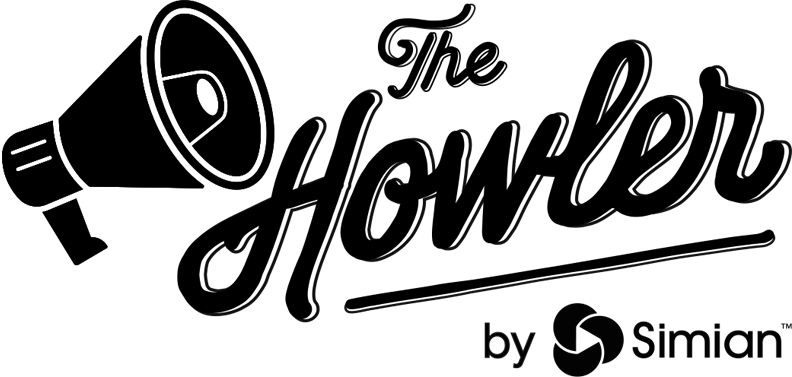Production Companies Need HR, says SYZYGY's Melissa Pezzello
Melissa Pezzello, Head of HR Services at women-owned accounting and CFO-level consulting firm SYZYGY, breaks down the basics of Human Resources.

When people think of HR, creative freedom and ease aren’t usually the first things that come to mind. Instead, HR is often seen as the department that stifles fun, keeps everyone on edge, and plays the role of strict overseers. However, that perception is far from reality, especially in production companies. It’s time to recognize that HR can actually be the bridge between production teams doing what they love—creating, collaborating, and enjoying the process—and constantly worrying about what might go wrong.
Without HR, production companies risk exposing themselves to legal troubles and other avoidable setbacks. But beyond that fear-driven mindset, integrating HR can unlock exciting possibilities. Rather than feeling like an authoritarian walking on eggshells, you could transform into an empowered, confident leader and filmmaker, ready to explore new creative frontiers.
Ensuring Compliance = Broader Range of Creatives on Your Roster
First off, what is compliance? In short, it’s the practice of ensuring that your company and employees adhere to federal, state, and local employment laws. These laws are subject to change at any time during the year, and it’s easy to miss something important if you aren’t an HR professional trained to keep an eye on these things.
Most production companies don’t have rosters comprised of artists with the same home base. Some even have international directors on their rosters. Company owners should establish HR best practices to ensure that state, city, and local compliance rules are followed and administered equitably. This applies whether your employees are fully onboarded with your company or if you’re managing freelancers. Without active monitoring by an HR professional, you’re leaving yourself and your company open to potential lawsuits regarding harassment, wrongful termination, employee misclassification, and pay transparency requirements. Furthermore, in a niche industry like production, word travels fast, and one honest mistake can quickly snowball into a rumor-mill catastrophe, making it harder to retain and hire talent and more challenging to get work. By engaging someone to hold your company accountable, you can joyfully pursue talent in other states, cities, and even countries, resulting in a diverse roster of artists instead of being hampered by perceived legal limits.
The Bridge Between Creative and Leadership
Simply put, a lot needs to be covered in the relationship between employers and their staff. It’s a nuanced, changing thing that needs an intermediary to run smoothly. HR is there to do things like ensuring employees know their rights or touching base with leadership about the overall company culture, but they also spare both parties stressful interactions. They’re the first line of defense for conversations with employees who may want a raise or questions like: “Am I on track to earn X dollars by Y date because of Z life event that’s happening for me?” HR knows how to tactfully manage these questions, including resolving conflicts between colleagues or guiding managers through challenging performance feedback discussions with their direct reports. If layoffs are on the horizon, they partner with leadership from the outset to ensure an empathetic approach, preparing emotionally and strategically for these difficult conversations. In these moments, HR acts as both a facilitator and a support system, ensuring each interaction remains compliant, compassionate, and respectful.
This is true for all companies, but in production, things move quickly, feelings run high, and people often enlist their friends to collaborate with them. Blending business with other close connections innately changes the dynamics of the relationship. HR helps everyone, whether they’re executives or creatives, navigate those changes and smooth everything over so everyone can do their best work.
Protecting Company Culture
The relationship between executives and creatives, daily operations, role expectations, and a commitment to diversity, equity, inclusion, and belonging are all key ingredients of a thriving company culture. A strong culture not only makes your production company an exciting and fulfilling place to work but also defines its personality. Collective behaviors, attitudes, and shared values foster internal camaraderie and build an external reputation, encouraging others to view your company in a positive light.
HR safeguards company culture. They ensure that an employee’s lifecycle at a company is engaging and fulfilling and that company owners are proud of how the company is being run and recognized in the industry. Company culture could feel like a nebulous concept, but trying to protect it like an asset directly contributes to a company’s longevity and ability to attract top talent, leading to even greater projects.
Offering customized HR services is similar to our financial services at SYZYGY. We’re personally excited to do both, and we’re equally enthusiastic about meeting the needs of production companies. Both of these offerings were born from the necessity for production companies to have cogent business practices that support the excellent work that they do. Not many company owners have training as accountants or HR managers, but thankfully, some people have. Getting into the nitty gritty of employment laws, rights, and accounting isn’t the most fun thing for leadership, but a good leader wants to ensure they’re all met. You can build a strong foundation with tailored HR solutions, allowing your production team to thrive without worrying about operational pitfalls. We can handle these complexities so you can focus on what truly matters—delivering exceptional work without compromise.



